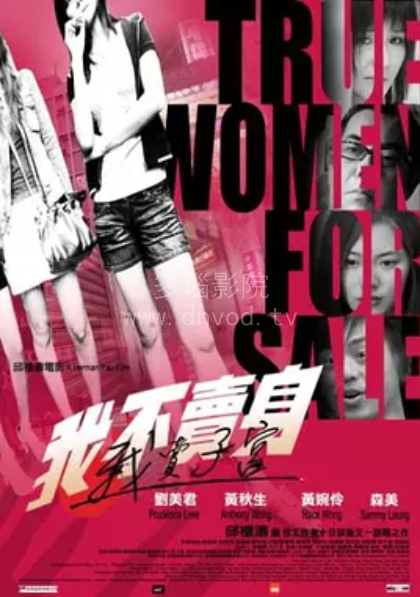Plot:
Sex workers continue to talk, Herman Yau once again challenges social taboos, no longer in the night of feasting and drinking, but in the world of prostitution in Sham Shui Po. Time goes back to Hong Kong in 2000. 2R Race plays a mainland woman who marries a Hong Kong man. She is willing to sell her belly in exchange for Hong Kong residency and Comprehensive Social Security Assistance. When her husband died of a work-related injury, she met insurance broker Anthony Wong. Liu Meijun plays a prostitute with rotten teeth. She is addicted to drugs and sells her body to make money. Once she bravely saves a child, she is sympathized by the famous photographer Sammi. At the age of 39, there is hope for a change of fortune. Two women struggling on the margins of society, whether selling their bodies or selling their wombs, prostitution or marrying a Hong Konger, the story is full of laughter and tears, and they see all kinds of life. "Sex Workers' 10 Days" has caused a lot of repercussions. Director Herman Yau and Yeung Yi-shan have joined hands again to create a series of sex worker films made in Hong Kong. The director explained that in fact, "Sex Workers' 10 Days" (hereinafter referred to as "Sex Workers") and "I Don't Sell My Body. The first drafts of the two scripts, "I Sell My Uterus" (hereinafter referred to as "I Don't Sell My Body"), were written as early as 2002. At that time, I planned to shoot "I Don't Sell My Body" first, mainly because it has a stronger story than "Sex Worker". On the surface, the story of "Sex Worker" has many characters and a scattered plot; most people who read the script at the time described it as loose. However, due to various reasons, "I Don't Sell My Body" could not be started, and the two scripts were left idle on my desk for a thousand days. Until 2006, Sex Workers was fortunate to find investors. Yang Yishan and I made major changes to the script in response to the situation of Hong Kong society and local sex workers. However, we still risked the risk of being "loose" and retained the main characters of the original script because we believed that sex workers are a community; in terms of length, it is not appropriate to focus too much on one or two specific characters. The resulting Sex Workers received quite a lot of positive feedback, which also enabled I Don't Sell My Body to become a movie. There are four main characters in I Don't Sell My Body, namely Lai Chung-chung (played by Liu Meijun), a sex worker on the street, Huang Lianhua (played by Huang Wanling) who married a Hong Kong uncle to fight for the right of abode, Liu Fuyi (played by Anthony Wong), an insurance seller, and Ah Zhi (played by Sammi Cheng), a still photographer. The first two are marginalized women under the social discourse, while the latter two symbolize a certain mainstream view of society. Perhaps the big People can simply describe "I'm Not Selling My Body" as a realistic film; it is undeniable that the characters and plots in the film are inspired by feelings, but in the final analysis, realism is just a means of creation, and reality has always been more bitter than movies. For me, "I'm Not Selling My Body" is not a reflection of reality. At best, it is just some of my views on the reality of Hong Kong society, or an optimistic discourse on the reality of Hong Kong society. I deeply understand that under the big discourse of society, speaking for certain people is often thankless, but it is precisely for this reason that I cherish the opportunity to shoot such a film even more, and I very much hope that the audience will come to support it. Special thanks to Liu Meijun and Huang Wanling for participating in the film, and even more thanks to my good friend Anthony Wong for his sincerity and support for this film. Everyone has a sky above his head; Lai Chung Chung, Huang Lianhua, Liu Fuyi, Ah Zhi, you and me are also like this.

